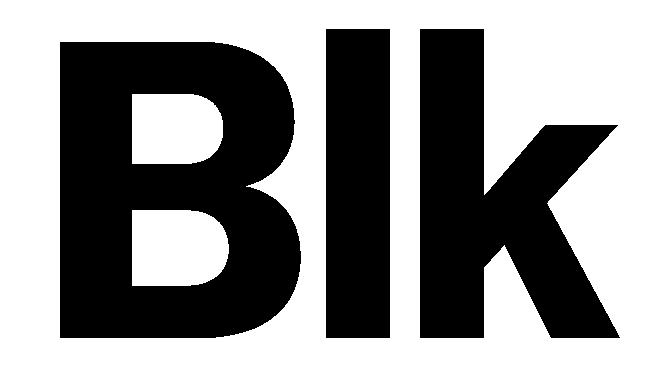The rise of telehealth has redefined how healthcare is delivered, offering convenient, efficient, and flexible access to medical services from the comfort of home. However, this convenience comes with a complex regulatory landscape, especially when prescribing controlled substances. For telehealth startups, navigating these challenges is critical—not only for compliance but also for ensuring patient safety and sustaining trust.
This article explores the regulatory landscape surrounding controlled substance prescriptions, with a focus on telehealth startups. From key regulations like the Ryan Haight Act to the role of state laws, it outlines how startups can build compliance frameworks while maintaining patient-centered care. Bask Health, a leader in addiction recovery services, provides valuable insights into safe, compliant practices that prioritize patient well-being.
What Are Controlled Substances, and Why Are They Regulated?
Understanding Controlled Substances
Controlled substances include medications with a higher potential for misuse, addiction, or illegal distribution, such as opioids, stimulants, and anti-anxiety drugs. These substances are regulated under the Controlled Substances Act (CSA), which categorizes them into five schedules based on medical use and abuse potential.
For telehealth startups, prescribing these medications involves strict compliance protocols. Any deviation can result in serious legal consequences, jeopardizing a company’s reputation and patient safety. Understanding these regulations is the foundation for offering controlled substance prescriptions responsibly.
The Growing Role of Telehealth in Addiction Treatment Services
Telehealth has revolutionized addiction treatment by removing barriers such as stigma, travel, and scheduling conflicts. It enables consistent care for patients with substance use disorders, offering a supportive pathway to recovery. However, prescribing controlled substances for addiction treatment brings additional scrutiny. Telehealth providers must implement monitoring systems and patient education to ensure safe and compliant care.
Navigating the Regulatory Landscape: Federal and State Laws
The Ryan Haight Act: A Key Regulation for Telehealth Providers
Enacted in 2008, the Ryan Haight Online Pharmacy Consumer Protection Act requires healthcare providers to conduct at least one in-person exam before prescribing controlled substances. During the COVID-19 pandemic, temporary waivers allowed telehealth providers to prescribe without in-person exams, offering flexibility. However, these waivers are set to expire, potentially restoring pre-pandemic restrictions.
Implications for Startups: Telehealth providers may need to explore solutions like physical facilities for in-person exams, local provider partnerships, or advocating for legislative changes to sustain their services.
State Telehealth Laws: A Patchwork of Requirements
State regulations add another layer of complexity. Laws vary significantly, creating logistical challenges for telehealth startups operating across multiple states. Companies must invest in legal expertise to ensure compliance with each state’s specific requirements or risk penalties and reputational damage.
Preparing for Regulatory Audits
Compliance extends beyond meeting regulations; it requires readiness to demonstrate adherence during audits. Telehealth startups should maintain detailed records, implement internal protocols, and conduct regular self-audits to identify potential issues proactively.
Legal and Ethical Considerations: Striking the Right Balance
Balancing Accessibility with Safety
Telehealth aims for greater accessibility, but prescribing controlled substances demands additional safety measures. Misuse or overprescription can lead to dependency, overdose, or legal repercussions. Telehealth providers must adopt stringent prescribing protocols and ensure thorough patient assessments.
The Importance of Educating Patients
Patient education is essential to safe prescribing practices. Misunderstandings about dosage, side effects, or interactions can pose serious risks. Telehealth providers should provide accessible resources, such as digital guides or support lines, to help patients understand their medications.
How Bask Health Approaches Safe and Compliant Prescriptions
At Bask Health, patient safety and compliance are peak priorities. The company employs advanced compliance software to monitor prescriptions and ensure adherence to state and federal laws. Regular training keeps healthcare providers updated on regulations, while comprehensive patient education resources promote safe medication use. Bask Health’s commitment to ethical care underscores its leadership in addiction recovery services.
Practices for Telehealth Startups Navigating Controlled Substance Prescriptions
Building a Strong Compliance Framework
A robust compliance framework should include detailed patient assessments, secure documentation practices, and regular audits. Compliance management software can automate processes, helping startups track regulatory changes and monitor prescription practices effectively.
Prioritize Continuous Communication and Patient Follow-ups
Clear communication and regular follow-ups are crucial for patient safety. Digital tools such as telemedicine apps and automated reminders can enhance engagement, ensuring patients adhere to prescribed regimens and receive ongoing support.
The Future of Telehealth and Controlled Substance Prescriptions
Potential Legislative Changes on the Horizon
The pandemic highlighted the benefits of flexible telehealth regulations, sparking discussions on permanent changes. Telehealth startups should stay informed about legislative updates and be ready to adapt quickly, ensuring uninterrupted services.
Embracing Technology for Better Compliance
Innovative tools like AI-driven compliance software and secure digital record-keeping are transforming how telehealth providers manage controlled substance prescriptions. By investing in technology, startups can streamline compliance and improve patient care.
Conclusion
Navigating the regulatory challenges of controlled substance prescriptions is a critical responsibility for telehealth startups. By prioritizing compliance, patient education, and technological innovation, companies can deliver safe, ethical, and effective care. Bask Health exemplifies this approach, demonstrating how telehealth can provide accessible addiction recovery services without compromising safety or quality.
This article examines how telehealth startups address the challenges of prescribing controlled substances while maintaining safety and regulatory compliance. Read more: Telehealth Startups and Controlled Substance Prescriptions.
Disclaimer: This article is for informational purposes only and does not constitute medical, legal, or professional advice. Telehealth companies and healthcare providers should consult qualified professionals to ensure full compliance with controlled substance regulations. For any healthcare or legal matters, seek guidance from licensed professionals.
Published by: Nelly Chavez







